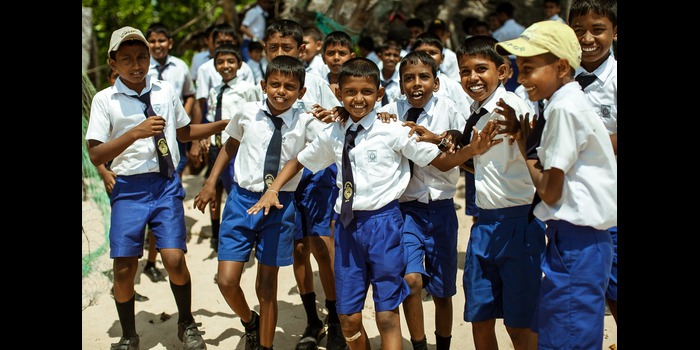Kerala Sparks Row Over ‘Pada Puja’ in Schools
Share

Kerala’s Minister of General Education, V. Sivankutty, has very strongly condemned the “Pada Puja” tradition observed in certain CBSE-related schools throughout the state. Videos of pupils performing this ceremony at Guru Purnima events, where they touched and cleaned their teachers’ feet, went viral on social media and sparked discussion. The Vidyadhiraja Vidyapeedom Sainik School in Mavelikara and the Saraswathy Vidyalayam in Bandadka, Kasaragod, recorded the habit. Managed by the Kerala branch of the Bharatheeya Vidya Nikethan (BVN), two institutions are connected with the (CBSE). Minister Sivankutty said in his speech that the habit runs contrary to secular and modern Kerala’s educational values. Schools should foster scientific thinking, fairness, and respect among pupils rather than repeating antiquated cultural standards based on caste or religious imagery, the minister stressed. Any company that encourages or engages in such behavior will suffer greatly. The Department of Education has asked the Director of General Education for an urgent report on the situation. Regardless of affiliation with the state board, ICSE, or CBSE, every educational establishment in Kerala has to abide by the state’s laws and regulations on child protection. Furthermore noting the incident suo motu is the Kerala State Commission for Protection of Child Rights (KSCPCR). The Commission asked the state police and the District Child Protection Units to look into the events around the ritual and if students were coerced to take part. The child rights group said it would not accept any conduct that compromises children’s dignity or their right to equality, and it would not. Still, the schools that took part defended their actions by claiming the event was part of the Guru Purnima holiday, a traditional Hindu celebration intended to show appreciation for teachers. According to school officials, the event was voluntarily, symbolic, and culturally significant. Rather, according to the staff, the pupils were just handing flowers to the instructors; they were not compelled to submit or actually wash their feet. The objective of the activity, they maintained, was to instill respect and values rather than to humiliate or control pupils. Student organizations and political groups affiliated with the ruling Marxist Communist Party of India (CPI(M), including the Democratic Youth Federation of India (DYFI) and the Students’ Federation of India (SFI), however vehemently protested the decision. These groups saw the event as caste-based and evidence of Brahmanical hegemony. They have urged the administration to promptly legally and punitively act against people and groups promoting such heinous behavior. Child psychologists and campaigners have also raised concerns about the psychological and social impact of these events on small children. While cultural education is helpful in classrooms, some claim that symbolic behaviors that back power hierarchies—especially when carried out by youngsters—may have long-term negative effects on students’ self-esteem, equality, and capacity to express themselves freely. Some experts believe that formal power could force kids to participate in these activities even if they are shown as free. Once renowned for its sensible view on education and children’s rights, Kerala now draws plaudits. Because of the inclusion of rites like Pada Puja in independent CBSE schools, the state’s public schools, well known for their emphasis on secularism, equality, and progressive teaching methods, have since started a bigger debate about the extent to which tradition should be allowed in contemporary classrooms. Minister Sivankutty underlined the government’s dedication to uphold constitutional principles in schools. He warned that any organization found to be violating these guidelines would be subject to harsh penalties regardless of its leadership or board membership. Under the cover of custom, the state government will not approve the promotion of feudalistic and caste-based customs nor will it condone the disrespect of children’s dignity. Still the main targets of the investigation are accountability and the prevention of future events. The state seeks to convey that although teachers must be respected, respect should never be obtained at the expense of a child’s fundamental rights and self-worth.








